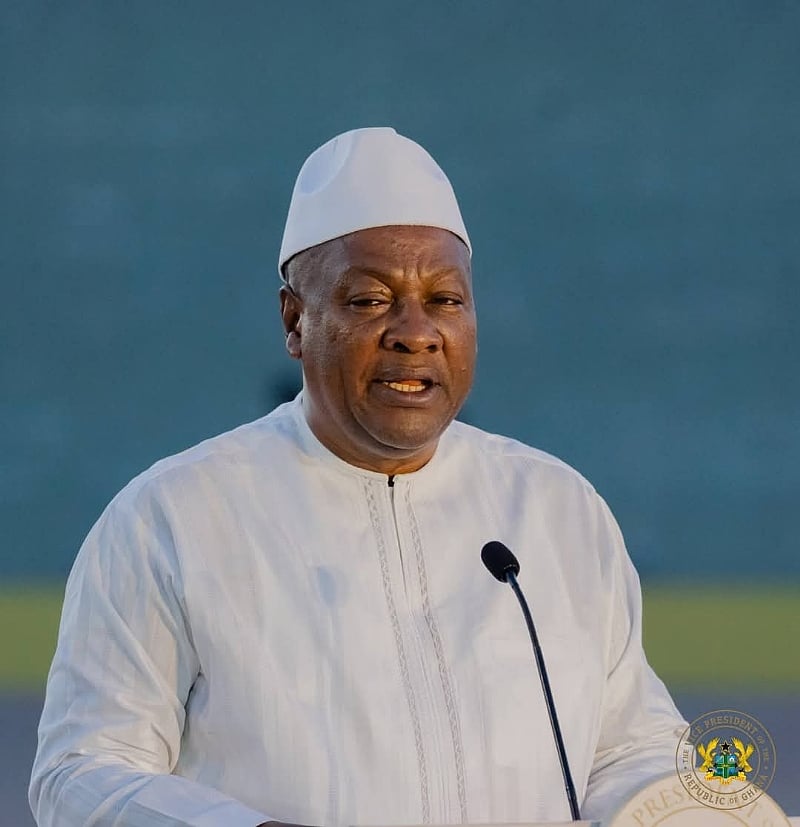Investing in Education: Empowering Muslim Communities for National Development
The Government of Ghana has unveiled a comprehensive plan to empower Muslim communities through strategic investments in education. President John Dramani Mahama announced the establishment of scholarships for brilliant but needy Muslim students pursuing higher education both within Ghana and abroad. These scholarships will prioritize fields such as medicine and engineering, aiming to equip future generations with the skills necessary to contribute meaningfully to national development. Recognizing the pivotal role of education in societal progress, the government has integrated Islamic schools into the mainstream education system, ensuring that Muslim children receive quality education without compromising their religious identity. Furthermore, the government plans to construct community-based senior high schools in predominantly Muslim areas to enhance access to secondary education. This multifaceted approach underscores the government’s commitment to fostering inclusive educational opportunities for all citizens, regardless of their background.
Entrepreneurship and Skills Development: Empowering Youth for Economic Independence
In addition to educational initiatives, the government is actively promoting entrepreneurship and skills development among young people within Muslim communities. The Edwumawura Programme, a flagship initiative aimed at empowering young entrepreneurs, will provide training and capital to 10,000 young people annually. This program seeks to equip young people with the necessary tools and resources to establish and sustain successful businesses, thereby creating jobs and fostering economic growth within their communities. Furthermore, the government plans to facilitate access to microfinance support for small businesses in Muslim communities and Zongo areas through the Soyaaya Fund. This fund will provide crucial financial assistance to small-scale entrepreneurs, enabling them to expand their operations and contribute to the economic vitality of their communities. These initiatives demonstrate the government’s commitment to empowering young people and fostering economic opportunities within underserved communities.
Healthcare Accessibility: Prioritizing Health and Well-being in Underserved Communities
Recognizing the crucial role of healthcare in a productive society, the government is committed to expanding healthcare facilities in underserved Zongo and Muslim communities. This includes upgrading existing hospitals and clinics to enhance service delivery and providing primary field pre-healthcare services, particularly in deprived communities. The introduction of mobile clinics aims to extend healthcare access to remote areas, ensuring that all citizens have access to essential medical services. Recognizing that healthcare should be a right, not a privilege, the government plans to expand the livelihood empowerment programme to cover poor households in Muslim communities. These initiatives demonstrate the government’s dedication to promoting health and well-being for all citizens, regardless of their location or socioeconomic status.
Strengthening Zongo Development Fund: Fostering Inclusive Growth and Development
The government has reaffirmed its commitment to strengthening the Zongo Development Fund, ensuring its effective management and maximizing its impact on the communities it serves. This fund aims to improve the quality of life for residents of Zongo communities by providing essential infrastructure, promoting education, and creating economic opportunities. By strengthening this fund, the government aims to address the unique challenges facing Zongo communities and create a more inclusive society where all citizens have the opportunity to thrive.
Promoting Interfaith Harmony and National Unity: Building a Cohesive Society
In addition to its focus on economic and social development, the government is committed to promoting interfaith harmony and national unity. Recognizing the importance of peaceful coexistence, the government aims to reinforce the values of tolerance, respect, and understanding among different religious communities. These efforts seek to foster a cohesive society where all citizens feel a sense of belonging and contribute to the overall well-being of the nation.
Ramadan’s Teachings: Embracing Patience, Sacrifice, and Compassion for National Renewal
President Mahama emphasized the importance of the values of patience, sacrifice, and compassion, which are central to the teachings of Ramadan. He urged all citizens to embrace these values as they work together to reset and rebuild the nation. The President called for continued prayers for Ghana, emphasizing the importance of collective efforts and divine guidance in the nation’s renewal process. The Chief Imam, Sheikh Osman Nuhu Sharubutu, expressed gratitude for the nation’s peace and offered prayers for the President’s success in implementing his agenda for the benefit of all Ghanaians. This emphasis on shared values and spiritual guidance underscores the importance of unity and collective responsibility in achieving national progress.


